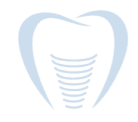
When facial trauma occurs, the journey to recovery extends far beyond the physical healing of bones, tissue, and teeth. At Torrance Oral Surgery, we understand that facial injuries affect not just how you look, but how you feel about yourself and how you interact with the world around you.
As specialists in facial trauma reconstruction, Dr. Benjamin Yagoubian and our team are committed to supporting both the physical and psychological aspects of your recovery journey. This approach is essential because the emotional impact of facial trauma can be as significant as the physical injuries themselves.
The Hidden Psychological Impact of Facial Trauma
Facial trauma is remarkably common in the United States. According to the Massachusetts General Hospital, over three million cases of facial trauma are treated in emergency rooms across the country each year. These injuries result from various causes including automobile accidents, sports injuries, falls, and unfortunately, acts of violence.
What many people don’t realize is the profound psychological impact that often accompanies these injuries. Research has shown that patients with facial trauma experience significantly higher rates of psychological distress than the general population:
- Between 27-41% of facial trauma patients develop Post-Traumatic Stress Disorder (PTSD)
- Nearly 40% of patients meet diagnostic criteria for depression, anxiety, or substance use disorders within three months of injury
- Many patients experience appearance-related distress that can persist long after the physical wounds have healed
The face is central to our identity and how we communicate with others. When facial injuries occur, patients often struggle with changes to their appearance, functionality, and self-perception. These challenges can manifest in various ways:
Changed Self-Image and Identity
Your face is intimately connected to your sense of self. When trauma alters your appearance—even temporarily—it can trigger profound questions about identity and self-worth. Even minor changes can feel significant when they affect how you see yourself in the mirror each day.
Social Anxiety and Isolation
Many facial trauma patients report heightened anxiety in social situations following their injury. Concerns about others’ reactions to their appearance can lead to withdrawal from social activities and relationships, creating a cycle of isolation that complicates recovery.
Functional Concerns
Beyond appearance, facial trauma can affect essential functions like speaking, eating, and facial expressions. These functional changes can cause frustration and anxiety, particularly when they impact professional and personal communication.
Trauma Response
The circumstances of the injury itself—whether from an accident, sports injury, or assault—can trigger psychological trauma responses. These may include flashbacks, nightmares, anxiety, and hypervigilance.
Recognizing the Signs of Psychological Distress
As part of holistic recovery, it’s important to recognize signs that you or a loved one might be struggling with the psychological aspects of facial trauma. These signs may include:
- Persistent sadness, emptiness, or hopelessness
- Withdrawal from social activities or relationships
- Sleep disturbances or nightmares about the traumatic event
- Heightened anxiety, especially in social situations
- Avoidance of mirrors or excessive focus on the injured area
- Intrusive thoughts about the trauma
- Changes in appetite or weight
- Increased use of alcohol or substances to cope
Recognizing these signs early can help ensure appropriate support is provided alongside physical treatment.
The Role of Comprehensive Care in Recovery
At Torrance Oral Surgery, we believe that addressing both physical and psychological aspects of recovery leads to better outcomes for our patients. Here’s how our approach supports holistic healing:
Specialized Surgical Expertise
Dr. Yagoubian’s extensive training in oral and maxillofacial surgery provides the foundation for successful physical reconstruction. His artistic skills in aesthetics and meticulous approach to facial reconstruction consider both function and appearance—essential components for psychological wellbeing.
Clear Communication
We take time to explain procedures, expected outcomes, and recovery timelines. This transparency helps reduce anxiety and builds trust—critical factors in psychological recovery.
Compassionate Follow-Up Care
Our care extends beyond the operating room. Regular follow-up appointments allow us to monitor both physical healing and psychological adjustment, addressing concerns as they arise.
Collaborative Care Network
When needed, we collaborate with mental health professionals who specialize in trauma recovery. This interdisciplinary approach ensures all aspects of healing are supported.
Strategies for Supporting Psychological Recovery
Whether you’re a patient or supporting a loved one through facial trauma recovery, these strategies can help address the psychological aspects of healing:
Acknowledge Emotional Responses
Recognize that emotional reactions to facial trauma—including grief, anger, anxiety, and sadness—are normal and valid. Giving yourself permission to experience these emotions is an important step in healing.
Build a Support Network
Connect with understanding friends, family members, or support groups who can provide emotional support during recovery. Simply sharing your experience with others who listen without judgment can be therapeutic.
Practice Self-Compassion
Recovery takes time, and progress isn’t always linear. Treat yourself with the same kindness and patience you would offer a friend facing similar challenges.
Focus on Function First
Celebrating improvements in functional abilities—like improved speech, easier eating, or reduced pain—can provide encouragement during the early stages of recovery when appearance changes may still be prominent.
Consider Professional Support
Working with a mental health professional who understands trauma and body image concerns can provide valuable tools for managing difficult emotions and building resilience.
When to Seek Additional Support
While some psychological distress during recovery is normal, persistent or severe symptoms may require additional support. Consider seeking help from a mental health professional if:
- Emotional distress interferes with daily functioning
- Symptoms of depression or anxiety persist beyond two weeks
- You experience thoughts of self-harm or suicide
- You find yourself using substances to cope with emotional pain
- You feel unable to engage in necessary recovery activities due to psychological distress
Remember that seeking psychological support is a sign of strength, not weakness, and can significantly improve both your recovery experience and outcomes.
The Importance of Integrated Care
Research has demonstrated that patients who receive integrated care—addressing both physical and psychological needs—experience better recovery outcomes. Studies from the Royal London Hospital found that facial trauma patients who received psychological services alongside medical treatment showed:
- Improved adherence to treatment plans
- Faster return to work and social activities
- Better management of pain and discomfort
- Higher overall satisfaction with recovery
These findings underscore why our team at Torrance Oral Surgery is committed to considering all aspects of healing in our treatment approach.
Moving Forward: The Recovery Journey
Recovery from facial trauma is rarely a straight line; it’s a journey with both challenges and triumphs. At Torrance Oral Surgery, we’re committed to walking alongside you through every stage of this journey.
Whether you’re beginning the recovery process or continuing along your path to healing, remember that both physical and emotional healing take time. Small improvements, both in function and in emotional wellbeing, are worth celebrating.
If you or a loved one has experienced facial trauma, we’re here to help. Dr. Benjamin Yagoubian and our team at Torrance Oral Surgery combine surgical expertise with compassionate care to support your complete recovery—physical, functional, and emotional.
Contact our practice today at [phone number] to schedule a consultation and learn more about our comprehensive approach to facial trauma recovery.
If you’re experiencing thoughts of self-harm or suicide, please reach out for immediate help through the National Suicide Prevention Lifeline at 988 or text HOME to 741741 to reach the Crisis Text Line.
Posted on behalf of
23451 Madison St #120
Torrance, CA 90505
Phone: (310) 373-0667
Monday - Friday 8AM - 5PM
